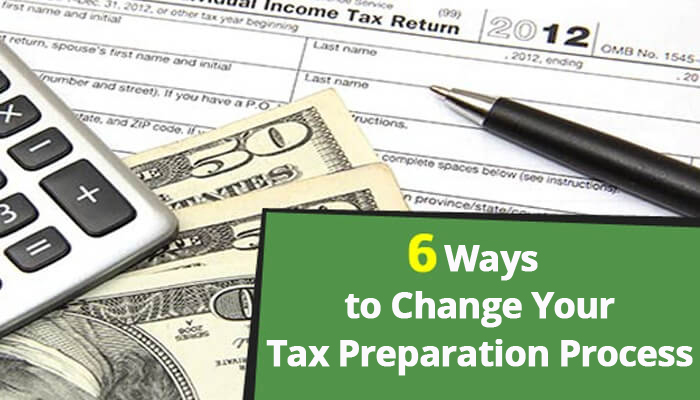Tax preparation is an important part of any business. Every business enterprise has to pay taxes as per the state laws. Are you finding your taxation process stressful? You have the option of hiring tax preparation professionals or filing your tax returns yourself. But the important thing is that the process should be easily manageable and not hectic. Tax preparation can prove to be a time consuming and difficult process if not managed properly. Paying less can lead to penalties from the state tax department and paying more is not beneficial for the business.
Tips to ensure that your tax preparation process goes along well
1. Ensure that you have complete information regarding the incomes and expenses
In order to ensure that your taxation process goes along smoothly; you must maintain proper financial records. In case hiring an accountant for this purpose is required, then it should be done. Not maintaining a record of income and expenditure could lead to eleventh-hour hiccups while hiring the tax returns. Managing the financial records properly is the key to making the tax filing process easier. It is also necessary to keep the personal and business expenses separate.
2. Keep records of previous year’s tax filings
Going through the previous tax returns can make things much easier as you can learn from the mistakes made last time. The areas which were overlooked last time can be improved this time.
3. Utilize tax outsourcing services
Using the outsource tax return option can prove to be handy for business. The third-party firms follow a successful methodology for ensuring that the tax returns are made accurately and in the right time frame. The outsourcing firms have access to the latest tax preparation software like Intuit’s Lacerte, Intuits Pro Series, Turbo Tax, Creative Solutions’ Ultra-Tax, ATX, etc. which can simplify the process. Outsourcing also offers a cost advantage.
4. Remain in touch with the latest tax laws
The tax laws and interpretations keep on changing. If you are not having access to a professional tax prepare then you should do the necessary research on your own. The Internet can prove to be a good option for this purpose.
5. File the returns on an earlier date
Filing the returns on a much earlier date can prevent the last-minute confusion and tension. This will also help in ensuring that there are no penalties for filing late returns.
6. Implement Cloud-Based Accounting:
Embrace cloud-based accounting solutions to streamline your financial record-keeping. Cloud platforms like QuickBooks Online, Xero, or FreshBooks provide real-time access to financial data from anywhere. This not only ensures accuracy but also facilitates collaboration with accountants or tax professionals.
7. Categorize Expenses Efficiently:
Take the time to categorize your business expenses meticulously. Proper categorization not only helps in accurate tax reporting but also provides valuable insights into spending patterns. Utilize accounting software features to create clear and organized expense categories.
8. Explore Tax Deductions:
Stay informed about potential tax deductions applicable to your business. Deductions can include home office expenses, business-related travel, equipment purchases, and more. Regularly review the tax code for new deductions that may benefit your business.
9. Maintain an Organized Receipt System:
Develop a systematic approach to managing receipts. Utilize digital tools or apps that allow you to scan and organize receipts efficiently. An organized receipt system ensures that you can substantiate your expenses in case of an audit.
10. Conduct Regular Financial Audits:
Periodically conduct internal financial audits to identify discrepancies or areas that require attention. Regular audits contribute to the accuracy of financial records and help address any issues before the tax filing period.
11. Seek Professional Guidance:
If navigating tax laws and regulations seems daunting, consider seeking professional guidance. Tax professionals or consultants can provide valuable advice on optimizing your tax strategy, ensuring compliance, and identifying potential areas for tax savings.
12. Utilize Technology for Document Management:
Leverage document management tools to store and organize crucial financial documents securely. Implementing a digital document management system reduces the risk of losing important paperwork and ensures easy retrieval when needed.
13. Consider Quarterly Estimated Payments:
If your business operates on a freelance or self-employed basis, explore the option of making quarterly estimated tax payments. This can help distribute the tax burden evenly throughout the year, preventing a significant financial strain during the tax filing season.
14. Stay Informed About Tax Credits:
Stay abreast of available tax credits that may apply to your business. Tax credits can directly reduce the amount of tax owed, providing a financial advantage. Research and understand eligibility criteria for credits relevant to your business.
15. Plan for the next year’s tax filing
Even if you have messed up this year’s tax returns, you have the opportunity to ensure that next year’s tax returns are filed properly. You can begin by starting to maintain a proper account of your financial transactions, hiring an accountant, etc.
Accounting to Taxes is among the leading companies offering outsourcing tax preparation services to business ventures all over the world. These services are meant for enabling the business organizations to concentrate on their core activities, reduce costs and maximize profits. To know more, contact us at info@accountingtotaxes.com or call us at +1 213-905-4947.
